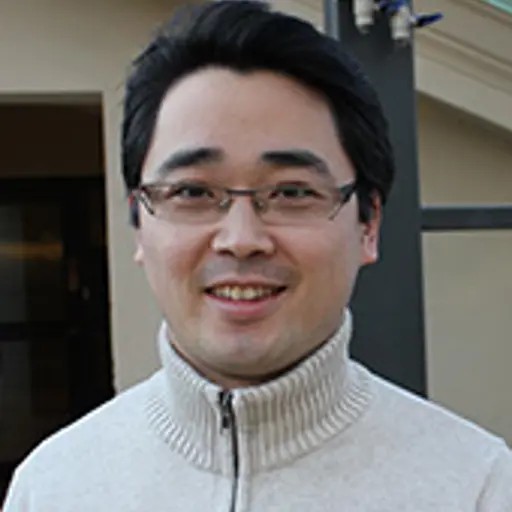Course overview
- Course codeFTME012
- ECTS credits4
- DepartmentTECHNOLOGY MANAGEMENT AND ECONOMICS
- Starts2025-04-24
- LanguageEnglish
- Nordic Five Tech (N5T)The course is free of charge for PhD students from N5T Universities.
- ApplicationRegister by mailing to doktfofu.tme@chalmers.se
Course coordinator
- Tomas Karlsson
- Associate Professor, Entrepreneurship and Strategy, Technology Management and Economics
About the course
Register by mailing to doktfofu.tme@chalmers.se
Last application date 10th of April
Purpose
The objective of this course is to broaden and deepen students' knowledge of qualitative research with a particular focus on the Gioia Method. By concentrating on various aspects of the Gioia Method, such as coding, presentation process models, and the review process, the goal is to enhance participants' understanding of qualitative methodology in general and the Gioia Method in particular.
The aim is for students to use this knowledge to improve their chances of developing their qualitative analyses and research findings into papers published in peer-reviewed journals.
Goals
Knowledge and Understanding
Upon completing the course, doctoral students should be able to:
Describe the origins of the Gioia Method and its overlap with related qualitative methods.
Account for and understand different methodological and philosophical perspectives related to the significance, strengths, and weaknesses of the Gioia Method.
Skills and abilities
After the course, doctoral students should be able to:
Demonstrate the ability to structure interpretation, categorization, and coding based on the foundational presentation framework of the Gioia Method.
Show skills and ability to develop a coding-based process model from the Gioia Method.
Display ability and insight regarding common criticisms and feedback on the Gioia Method during scientific review and the analysis requirements often imposed.
Judgement and Approach
After the course, doctoral students should be able to:
Critically analyze and evaluate the Gioia Method in relation to their own research.
Discuss potential challenges and limitations of the Gioia Method when designing a research project.
Content
The course covers the following areas: the history and context of the Gioia Method, its main arguments and components, and the debate surrounding the Gioia Method including common objections in review processes and in general scientific discourse. The course includes both practical analysis and coding sessions as well as opportunities for discussion and knowledge exchange. Prerequisites include qualitative data for Gioia analysis and experience with at least one qualitative study.
The course reviews foundational articles on the Gioia Method and various articles that have successfully applied the method in publications. The areas covered include different phenomena from theoretical and empirical perspectives, how these phenomena have been studied, and what the results and conclusions of various studies mean for qualitative research.
Prerequisites
To enroll in the course, participants need at least one course in qualitative methods at the doctoral level or equivalent experience collecting qualitative data, along with access to qualitative data for analysis. Eligibility is granted to those admitted to a doctoral-level education.
Audience
The course is intended for doctoral students and active researchers in business administration, industrial economics, or related fields.
Teaching methods
Teaching will be conducted through seminars and workshops. Seminar sessions will involve discussion and analysis of a selection of articles within the seminar group. Each participant will be assigned 1-2 articles for each session and will be responsible for presenting and leading the discussion on these articles. Participants are expected to have read the relevant articles and submitted a two-page reflection per article based on discussion questions before each seminar.
Literature
Will be announced at the latest one week before each session
Examination
Learning objectives are assessed through written reflections before seminar discussions and active participation in these sessions. Attendance at all course sessions is expected, and any absences should be notified to the examiner as early as possible. All written assignments must be completed. Physical attendance is required at in-person meetings.
Examiner
Tomas Karlsson
Additional information
The course will take place through Zoom and or Teams, and
include 4 full day sessions from 9 am to 4 pm, including a lunch break from 12-13. The course is a joint effort from lecturers from Chalmers University of Technology, Linköping University and Umeå University.
Course evaluations will be conducted at the end of the course. The results of the course evaluations will be communicated to the participants and the doctoral education council at the Department of Technology Management and Economics.
Schedule: (subject to changes)
April 24 9-16 Aku Valtakoski, Linköping University: The Gioia method in its current context and foundational texts.
May 9 at 9-16 Medhanie Gaim: Umeå University: Practical work on coding data and creating process illustrations and causal relationships
May 23 in 9-16 Tomas Karlsson, Chalmers University of Technology: Practical work continued; Applying the Gioia framework, experiences in applying it, and getting through review processes.
June 5 at 9-17 Tomas Karlsson, Chalmers University of Technology: Presentation of works, experience sharing across participants and course evaluation.
More information
tomas.karlsson@chalmers.se
Literature
Will be announced at the latest one week before each session
Lecturer
Dr. Tomas Karlsson
